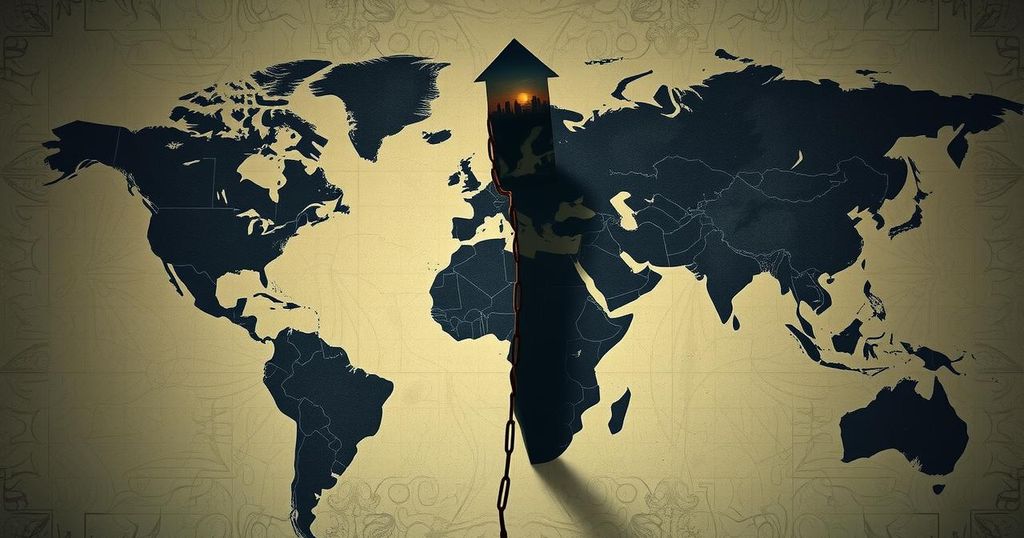The M23 rebel group claims to protect Tutsis in eastern DR Congo while committing atrocities. This situation highlights the complex identity issues surrounding Tutsis and Banyamulenge, who have faced discrimination for decades. Despite a constitutional acknowledgment of their citizenship, anti-Tutsi sentiments persist, particularly during unrest. The historical context of their migration, associated with Rwandan conflicts, exacerbates their disenfranchisement and vulnerability in contemporary society.
The M23 rebel group is causing significant turmoil in eastern Democratic Republic of Congo, claiming to protect local Tutsis while committing brutal acts, including war crimes. This raises questions regarding the identity and status of Tutsis in the country. Despite the rebels’ assertions, many regard their actions as exploitative, targeting the region’s mineral resources rather than genuinely defending the Tutsi community.
A substantial number of Tutsis reside in the DR Congo, although precise figures are unavailable. Many Tutsis oppose the repugnant activities conducted under their banner. Throughout history, Tutsis, particularly the Banyamulenge, have faced severe discrimination, including ethnic violence and systemic exclusion from society, as indicated by reports from the UN and various analysts.
The discrimination stems partly from the association of Congolese Tutsis with Rwanda, which has been under Tutsi leadership since 1994. Historical conflicts, including violent uprisings supported by Rwandan forces, have cemented the perception of Tutsis as foreigners, resulting in tragic consequences, including the killings of individuals identified as Tutsi or Banyamulenge.
Individual testimonies illustrate the ongoing crisis. Bukuru Muhizi reported that members of his family were killed due to their Tutsi ethnicity, highlighting the community’s historical suffering. Moreover, Muragwa Cheez Bienvenue shared his experience of being extorted under the false accusation of being a Rwandan, showcasing the societal tensions present in DR Congo.
Before colonial rule, parts of today’s DR Congo were under the Rwandan monarchy, leading to tensions over racial and territorial boundaries. These issues intensified with European colonizers drawing arbitrary borders and facilitating migration, particularly of Tutsis seeking refuge from violence in neighboring countries. Significant inflows of Tutsis into DR Congo occurred during major conflicts in Rwanda and Burundi, further complicating their identity in the region.
The political landscape has fluctuated, with various administrations alternately empowering and marginalizing Tutsi groups, especially during the brutal rule of Mobutu Sese Seko. Citizenship rights were rescinded in the early 1980s, stripping many Tutsis and Banyamulenge of their nationality and resulting in historical massacres against them, as noted by multiple sources, including the UN.
Presently, the constitution recognizes Tutsis and Banyamulenge as Congolese, yet discrimination persists, exacerbated by current tensions from the M23 insurgency. Reports indicate that anti-Tutsi sentiments often rise during periods of unrest, causing substantial fear within the community. The government has attempted to acknowledge and address these discriminatory practices, albeit inconsistently.
Despite some advances, prejudices remain strong, with individuals within these communities facing persecution. Activists like Mr. Bienvenue continue to advocate for recognition and equality, citing everyday examples of discrimination despite their long-standing presence in DR Congo. This complex narrative underscores the fragile identity of the Tutsi and Banyamulenge people in the face of ongoing conflict and historical injustices.
The situation of Tutsis in the Democratic Republic of Congo is exceedingly complex, marked by historical discrimination and current conflicts involving the M23 rebel group. While recognized as Congolese, Tutsis and Banyamulenge face prejudice fueled by past associations with Rwanda and ongoing ethnic tensions. The brutal actions of armed groups not only exploit these divisions but also perpetuate a cycle of violence and suffering. Continued advocacy for their rights and recognition is essential to address these systemic injustices.
Original Source: www.bbc.com






